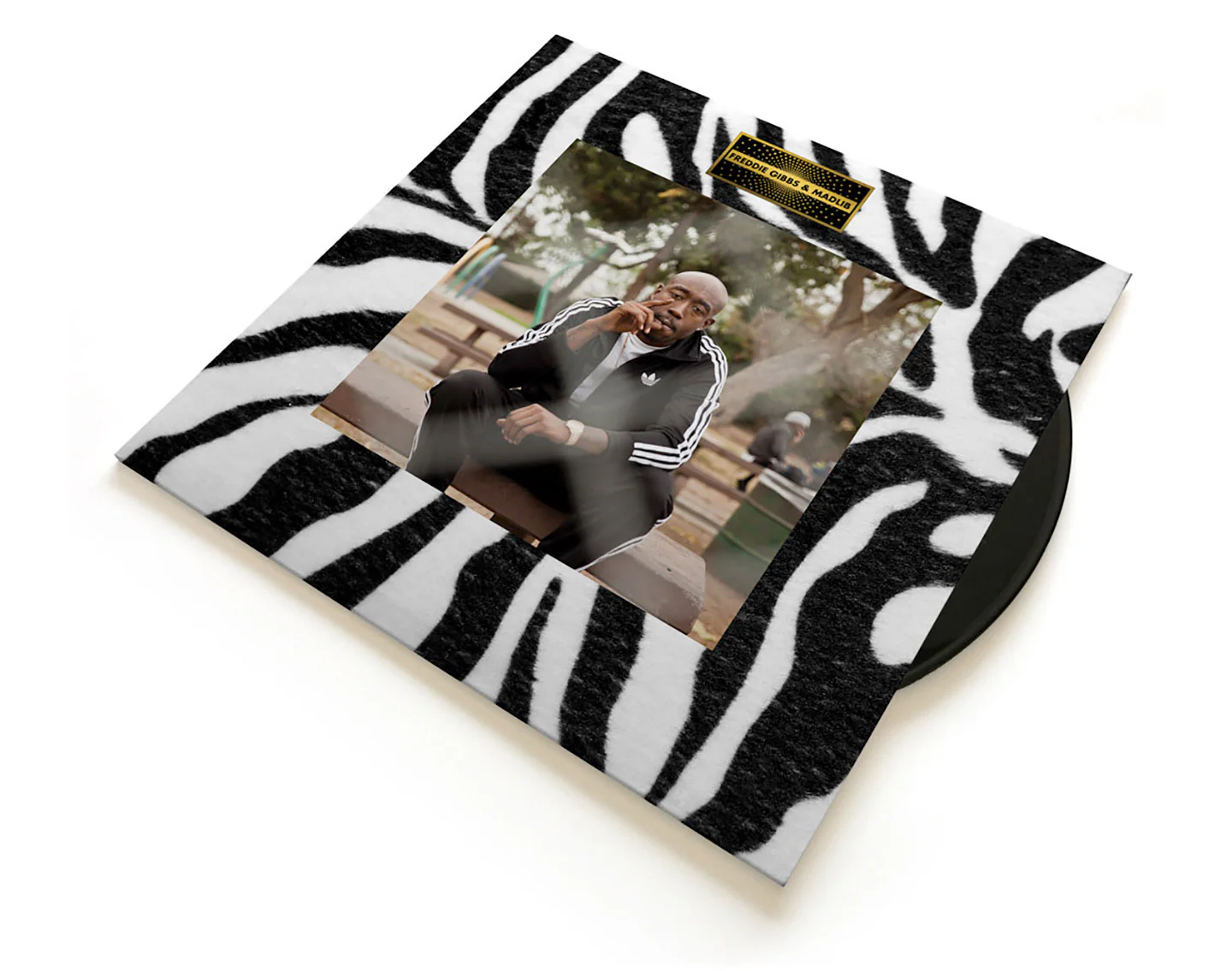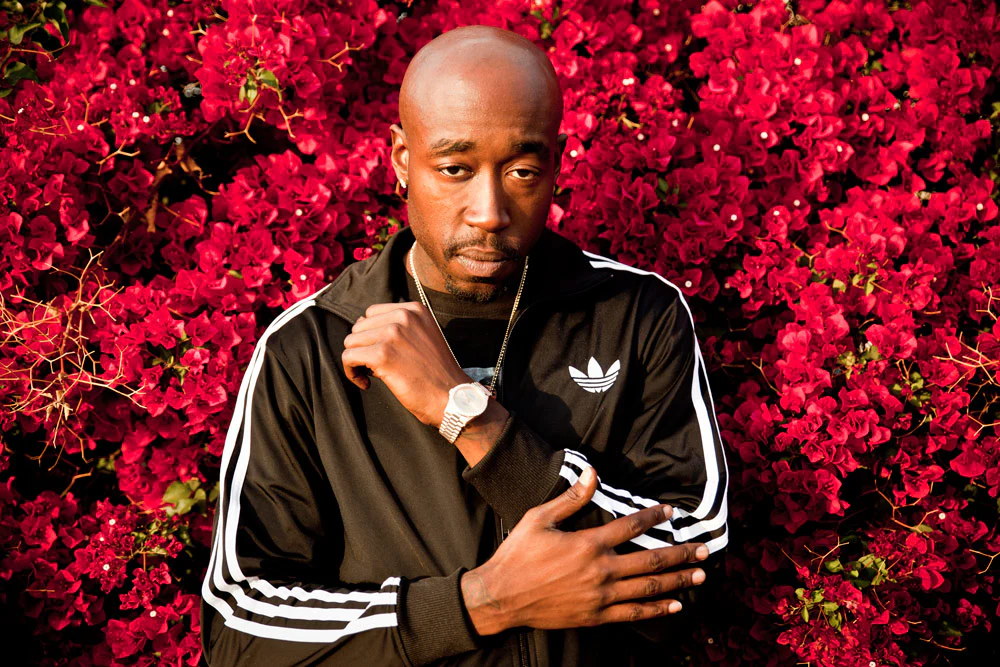March 18, 2014
Freddie Gibbs is the product of violent, drug-laden streets, but unlike most rappers with similar resumes, he brings the block to the booth without inhibition or an exaggerated rap persona. Pinata, a 17-track collaboration with producer Madlib, is the best distillation yet of his transparent approach to making music, combining stark honesty with electrifying talent as a lyricist and performer.
Piñata is “a gangster Blaxploitation film on wax,” Gibbs says, and the full-length result of a process that began in 2009. It’s an album with a sound that couldn’t be any further from the radio, where, according to the Gibbs, every rapper is Superman, or the dope dealer of the century, who has grinded to the top, never made a mistake and has no chinks in his armor.
“I will show you my flaws, I’ll show you what I’ve done wrong and what I’ve fucked up at,” says the native of Gary, Indiana, the former steel town best known for producing Michael Jackson. “I don’t regret shit, but I’ll show you the things I’m not proud of.”
Gibbs is joined on Pinata by Mac Miller, Earl Sweatshirt, Raekwon, Scarface, Domo Genesis, Ab-Soul and a host of others in setting his soliloquies of the streets alongside film snippets and dusted funk, soul and prog musical tapestries. While this is the latest in a series of single-artist collaborations for Madlib, after Jaylib (J Dilla), Madvillainy (MF Doom) and the street-centric O.J. Simpson with Detroit’s Guilty Simpson, the pairing is unique as it is the first time for Gibbs working with just one producer.
There’s also Madlib’s own self-awareness of his style as a producer. “My stuff, it ain’t fully quantized…it has more of a human feel, so it might slow down or speed up,” he says. “So you have to be the type of rapper, like Doom or Freddie, who can catch that, or else you’ll be sounding crazy.”
Gibbs admits it was a challenge rapping over beats with chops and changes as unpredictable as the man who created them, but says–with conviction and supreme confidence–“I think I did it to perfection.”


